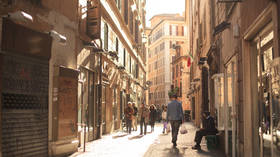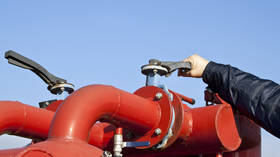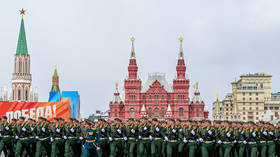Italy’s growth forecast slashed to zero

The Italian economy is expected to stagnate in 2023 due to major concerns over energy supplies amid growing tensions between Russia and the EU, according to a report released by the Confindustria Association of Industrialists on Saturday.
The country’s main business lobby downgraded its outlook for GDP growth in 2023 to zero, from the 1.6% projected in April.
“If tensions between the EU and Russia were to escalate to such an extent as to lead to further price jumps and/or the blocking of gas supplies, the negative effects on production activity would be more severe, implying a more pronounced recession,” the report reads.
The downgrade comes a week after the country’s government slashed its growth forecast for next year to 0.6%, due to skyrocketing energy costs. Still, Mario Draghi's outgoing administration expects GDP to expand by 3.3% in 2022, up from the forecast of 3.1% made in April.
Confindustria, however, revised its estimate for 2022 up to 3.4% from 1.9%, citing the excellent performance by the Italian economy in the first half of the current year.
Moscow and Brussels have been at loggerheads over the supply of Russian natural gas since the EU imposed a wide range of sanctions against the country over the military operation in Ukraine. The measures have forced Russia to significantly reduce gas supplies to several member states of the bloc.
Since February, the share of Russian gas in Italian imports has fallen from 40% to roughly 18%. However, officials say they can cope with the shortfall expected this winter by using alternative fuel sources. Also, in order to reduce gas consumption, the country has adopted an energy-saving plan that entails the heating season being cut by 15 days and the temperature in buildings being heated reduced by one degree Celsius.
For more stories on economy & finance visit RT's business section














